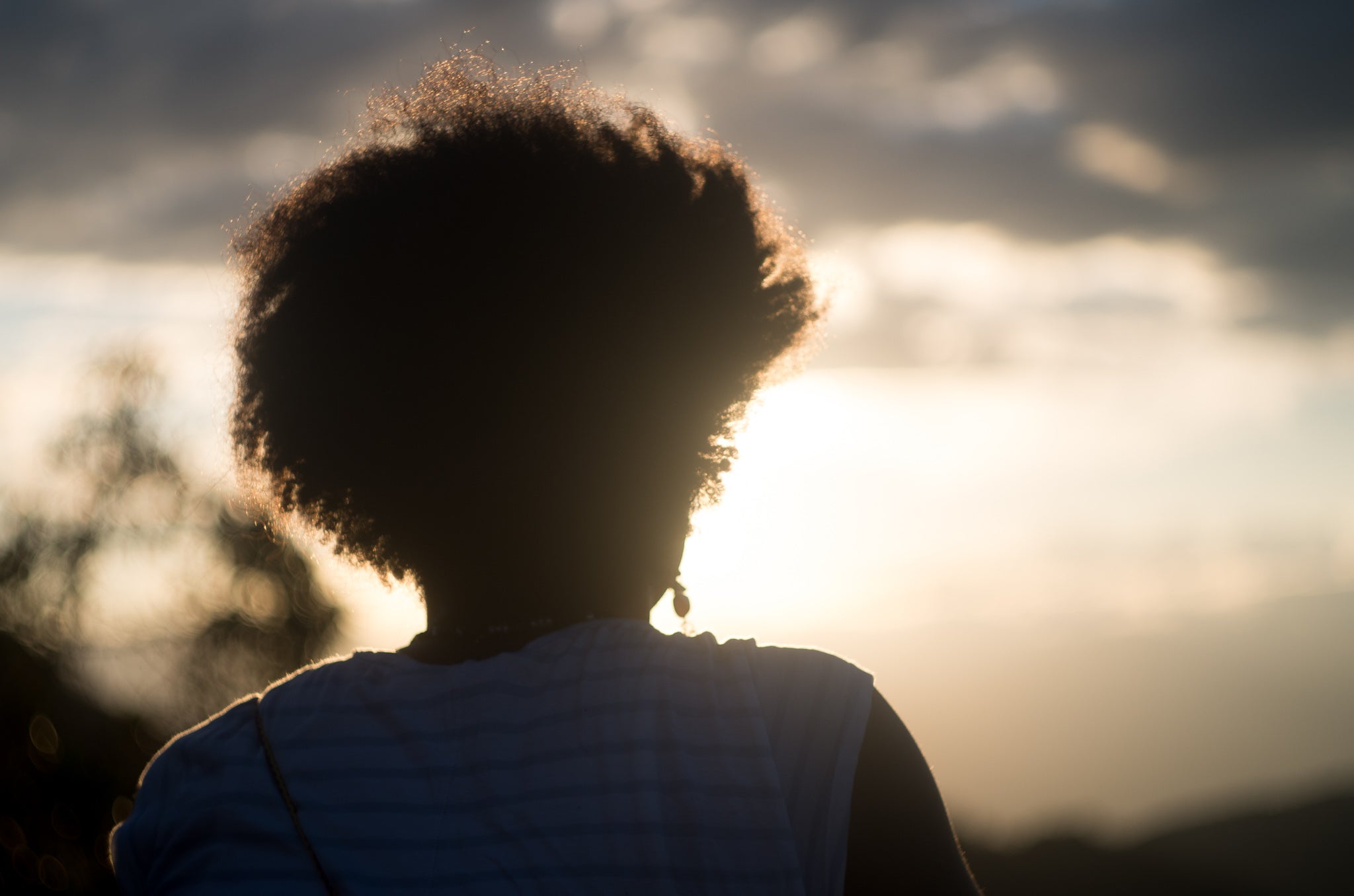Young Black people changing their names and hair at work to ‘fit in’ with colleagues
Half of young Black women avoid wearing natural Afro locks at work due to unwelcome scrutiny.

Your support helps us to tell the story
From reproductive rights to climate change to Big Tech, The Independent is on the ground when the story is developing. Whether it's investigating the financials of Elon Musk's pro-Trump PAC or producing our latest documentary, 'The A Word', which shines a light on the American women fighting for reproductive rights, we know how important it is to parse out the facts from the messaging.
At such a critical moment in US history, we need reporters on the ground. Your donation allows us to keep sending journalists to speak to both sides of the story.
The Independent is trusted by Americans across the entire political spectrum. And unlike many other quality news outlets, we choose not to lock Americans out of our reporting and analysis with paywalls. We believe quality journalism should be available to everyone, paid for by those who can afford it.
Your support makes all the difference.Young Black people are changing their names at work and don’t feel comfortable wearing their natural hair, a new study has revealed.
22 per cent of young Black people reported changing their name on a job application to improve their chances of success, according to the largest ever survey of Black Gen Z Talent in the UK conducted by recruitment marketing agency, TapIn.
This is significantly high especially when compared with their Asian Gen Z and white Gen Z peers (12 per cent and 7 per cent respectively).
Some 47 per cent of this group said they altered their names to make it easier for colleagues to pronounce at work while just 14 per cent and 24 per cent of their white and Asian counterparts, respectively.
Over 2,000 Black people, between the ages of 16-25, were interviewed for the report in a bid to understand what motivates Black people to stay in jobs and perform well at work.
Figures from the ‘This is Black Gen Z’ report revealed that 45 per cent of young Black women avoided wearing their natural Afro locks at work due to the unwelcome scrutiny it often brings. By contrast, 76 per cent of White Gen Z workers feel comfortable with their natural hair.
"I always shorten my [African] last name as well […] It makes the interview feel less awkward when they say my name […] It feels like, um, it feels like it’s a bit harder to then engage with them after your first introduction is you correcting them,” a Black non-binary employee, aged 20-25 years old, told researchers.
“So I shorten my name […] It’s a more Western name and I’ve done it all my life, like in school, to just make life easier […].

“It takes the focus off my name, and more on me I guess. So they don’t judge me, [by thinking] ‘oh her name’s really hard to say’, but more like, ‘oh she’s a good candidate’ or ‘she’s not the good candidate.”
The research, backed by FTse 100 firms including Tesco and GSK, looked at how Black Gen Zers find jobs, how they navigate the application process, what support they want from employers, and how authentic they feel they can be at work.
When deciding whether or not to wear their natural hair to interviews, those polled highlighted concerns about being perceived as unprofessional.
“I would very much love to wear my hair to work... cause who wouldn’t? [It’s] the people that are around you just constantly wanting to, like, fiddle with it or, um, you know, you are being told that your hair are [sic] distractions to other people and, like, it’s my hair,” a female student told researchers.
The report comes after the Equality and Human Right Commission (EHRC) committed to reviewing its guidance on Afro hair discrimination in workplaces and schools last week.
Once in the workplace, only 31 per cent of Black Gen Z workers said they felt able to be their authentic selves, compared to 66 per cent of their white peers. That meant the majority of those surveyed felt the need to change the way they look to “fit in” with colleagues.
Unable to be their authentic selves at work, workers can be left feeling stressed, anxious and demotivated, which has a negative impact on their mental health and productivity, the report found.
Milimo Banji, CEO of TapIn, said: “Our report is a wake-up call for employers across the country. We found that Black Gen Z can really thrive when supported to be their authentic selves in the workplace. But there are still too many barriers and hoops for them to jump through.
“Something as simple as having to change your name that colleagues keep getting wrong can have profound impacts on Black employees. They shouldn’t have to think twice about wearing their natural hair to work.
“It’s been said that people find it easier to pronounce names of fictional characters on Game of Thrones like Daenerys Targaryen than colleagues with non-anglicised names. That needs to change.”
The report’s recommendations for improvement include creating an “inclusive” culture, which encourages staff to respect diverse cultures, provide pastoral support for employees and tackling discrimination “transparently and effectively”.


Join our commenting forum
Join thought-provoking conversations, follow other Independent readers and see their replies
Comments